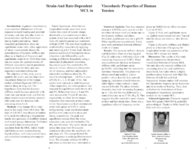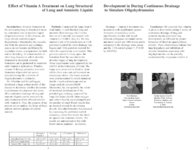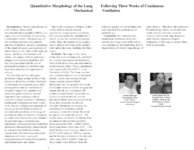| Title |
University of Utah Undergraduate Research Abstracts, Volume 2, Spring 2002 |
| Subject |
University of Utah -- Students -- Periodicals |
| Publisher |
J. Willard Marriott Library, University of Utah |
| Date |
2002 |
| Type |
Text |
| Format |
application/pdf |
| Identifier |
vol2.xml |
| Language |
eng |
| Rights Management |
Digital image © copyright 2009, University of Utah. All rights reserved. |
| Holding Institution |
University of Utah |
| Source Material |
Bound journal |
| Source Physical Dimensions |
14 cm x 21 cm |
| Source Format |
Image files generated from QuarkXpress 4.1 |
| Display Resolution |
GIF: 800 x 1236 pixels; 72 dpi |
| ARK |
ark:/87278/s6k937m0 |
| Temporal Coverage |
Spring 2002 |
| Setname |
uu_urop |
| ID |
416749 |
| Reference URL |
https://collections.lib.utah.edu/ark:/87278/s6k937m0 |









































